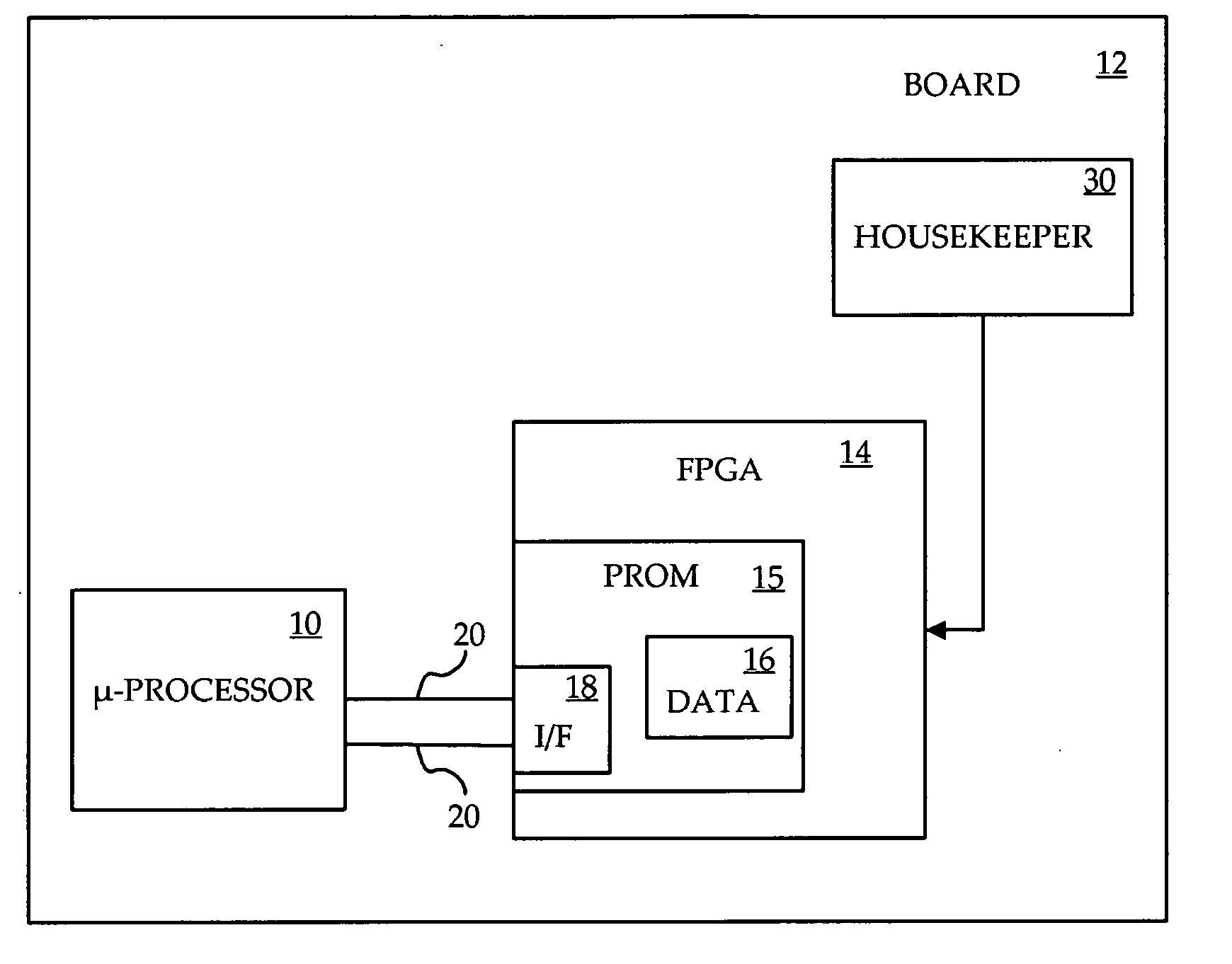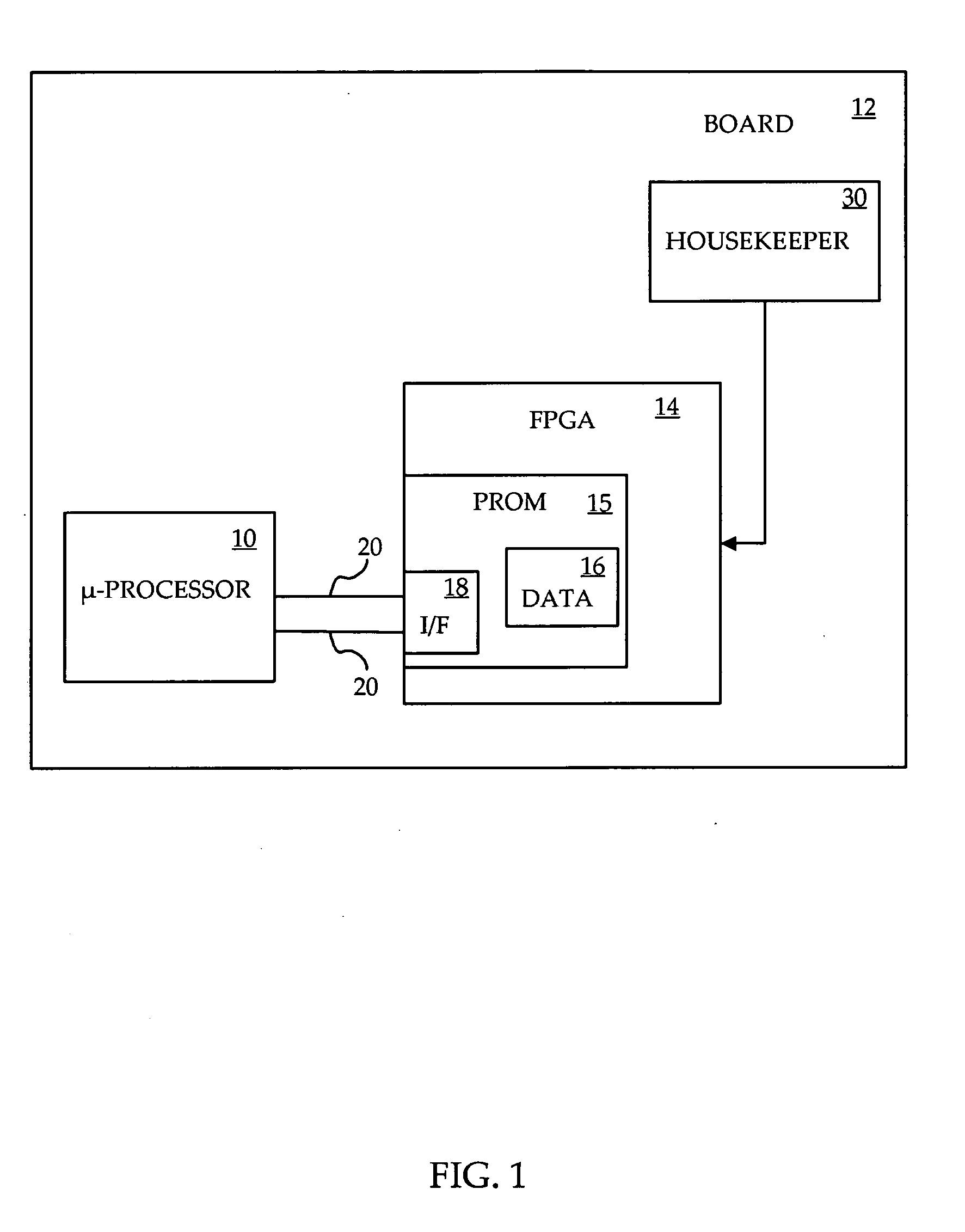Implementing a microprocessor boot configuration prom within an FPGA
a microprocessor and configuration prom technology, applied in the field of boot configuration proms, can solve the problems of difficult field management of such proms, and achieve the effect of saving real estate and easy reconfiguration
- Summary
- Abstract
- Description
- Claims
- Application Information
AI Technical Summary
Benefits of technology
Problems solved by technology
Method used
Image
Examples
Embodiment Construction
[0013] Referring to FIG. 1, a chip arrangement according to one embodiment of the invention is shown. A microprocessor 10 is located on a circuit board 12, such as a card in a telecommunication device. The board 12 also includes a Field Programmable Gate Array (FPGA) 14. The FPGA includes an emulation of an I2C PROM 15. The I2C PROM emulation 15 includes an emulation of an I2C interface 18, logic carried out by a boot PROM, and boot configuration data 16. It should be noted that these are functional elements and may not necessarily be distinct elements, the I2C PROM being emulated as a whole. The microprocessor 10 includes an I2C interface (not shown) which communicates over two pins 20. The two pins 20 are the pins through which the microprocessor 10 retrieves a boot configuration when the microprocessor is booted. The two pins 20 lead to the I2C interface 18 on the FPGA 14. In this way, the microprocessor 10 retrieves its boot configuration from the boot configuration data 16 stor...
PUM
 Login to View More
Login to View More Abstract
Description
Claims
Application Information
 Login to View More
Login to View More - R&D Engineer
- R&D Manager
- IP Professional
- Industry Leading Data Capabilities
- Powerful AI technology
- Patent DNA Extraction
Browse by: Latest US Patents, China's latest patents, Technical Efficacy Thesaurus, Application Domain, Technology Topic, Popular Technical Reports.
© 2024 PatSnap. All rights reserved.Legal|Privacy policy|Modern Slavery Act Transparency Statement|Sitemap|About US| Contact US: help@patsnap.com









